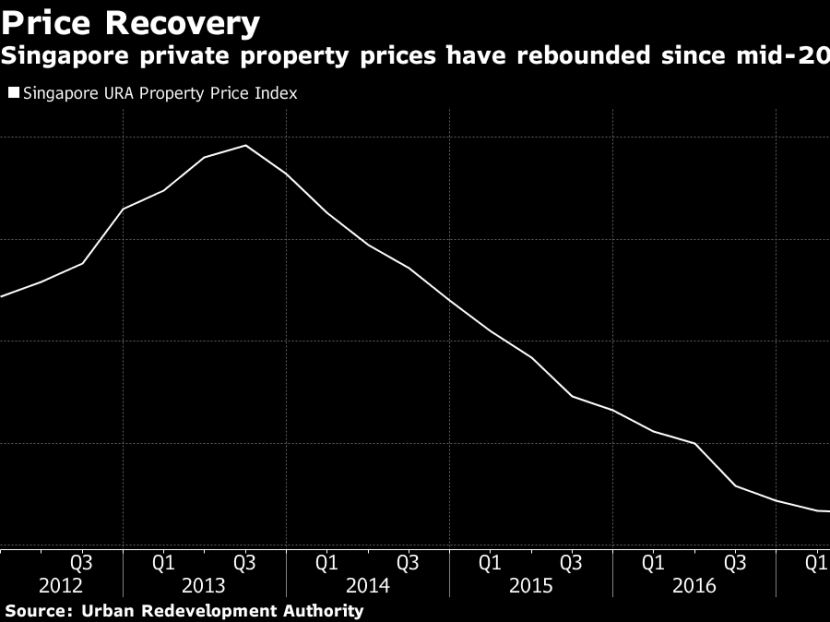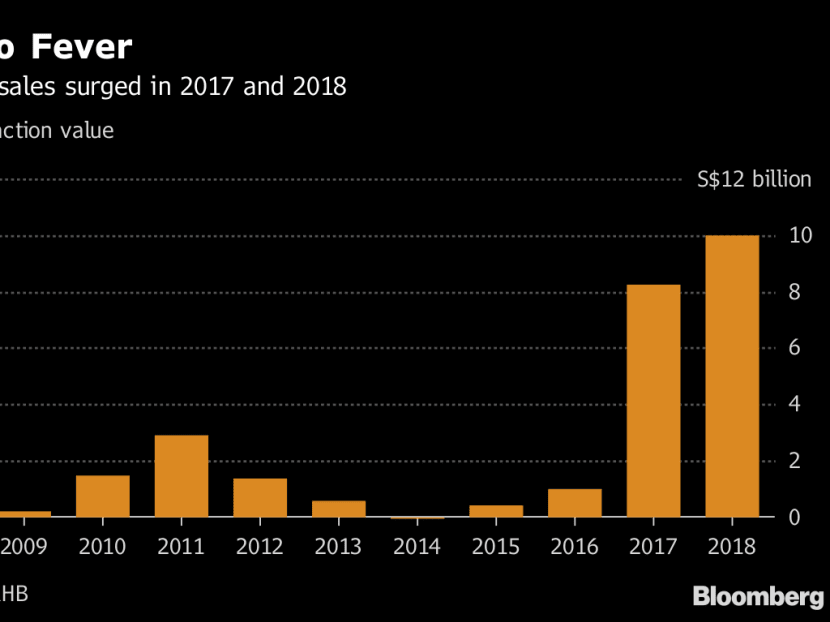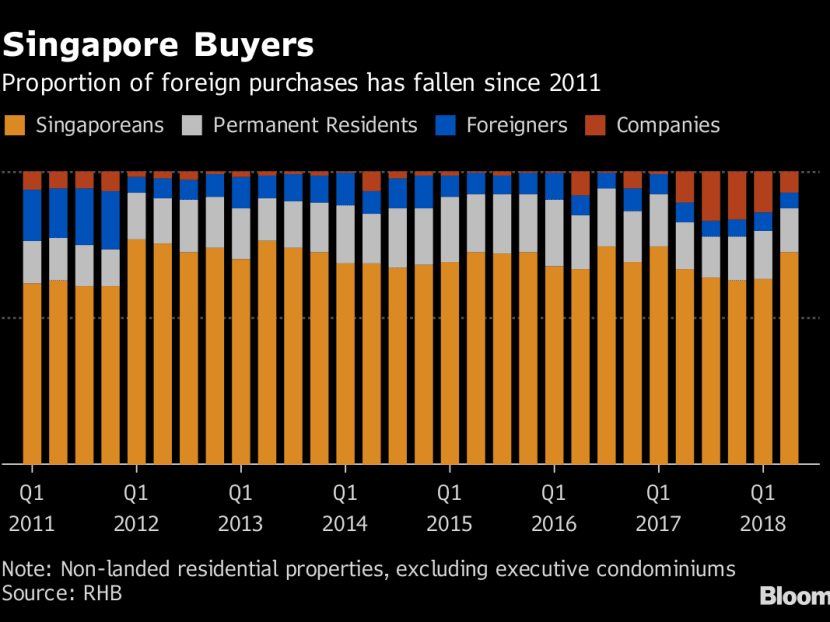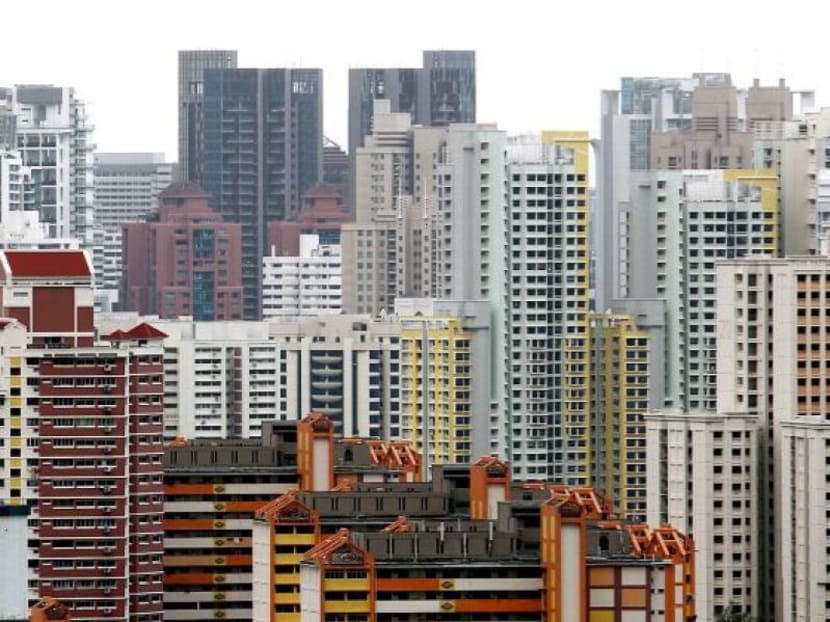Three charts that help explain Singapore's new property curbs
SINGAPORE — The Government imposed cooling measures on its property market last week, in a bid to contain what the central bank described as “euphoria” in the sector. Here are three charts showing some of the factors behind the government’s concerns:
SINGAPORE — The Government imposed cooling measures on its property market last week, in a bid to contain what the central bank described as “euphoria” in the sector. Here are three charts showing some of the factors behind the government’s concerns:
1. PRICES
Residential property prices have rebounded since the middle of last year, after Singapore reduced a stamp duty on sellers and eased mortgage restrictions in March 2017.
In the absence of the cooling measures imposed last week, prices would likely have continued higher to revisit their 2013 peaks, according to Ms Christine Li, a senior director of research at Cushman & Wakefield. That is now unlikely to happen, Ms Li said.

Graph: Bloomberg
2. EN-BLOC SALES
A key measures of the euphoria is Singapore’s so-called en-bloc market, where a group of owners band together to sell blocks of older apartments for redevelopment.
Transactions have surged in recent months, thanks to demand from property developers. In its annual report last week, released the day before the new curbs were announced, the Monetary Authority of Singapore highlighted “strong activity” by developers in en-bloc sale tenders.

Graph: Bloomberg
3. LOCAL DEMAND
Singaporeans and permanent residents have predominated in the recent rush to buy apartments, said RHB analyst Vijay Natarajan.
After waiting on the sidelines while the market was in the doldrums after 2013, pent-up local demand was released last year as prices started to rise, Mr Natarajan said.
The share of purchases by foreigners, a big contributor to previous prices booms, slipped to 5 per cent in the second quarter, compared with 17 per cent in the first quarter of 2011.

Graph: Bloomberg
The nature of foreign buying in Singapore has changed, according to Ms Tan Su Shan, head of wealth and consumer banking at DBS.
There are fewer overseas speculators buying multiple apartments, as seen in the past, compared with the "real, long-term, quality investors" which are more common today, she told Bloomberg last week. BLOOMBERG







